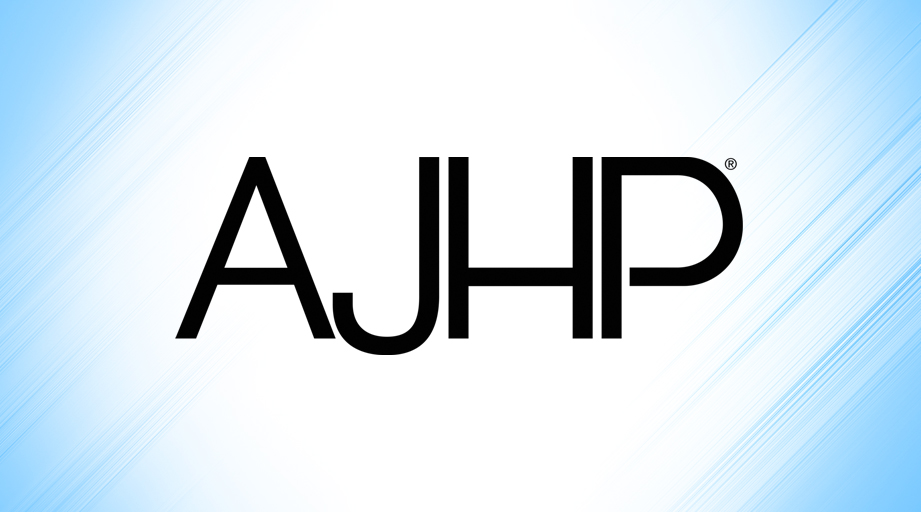
Hospital Drug Expenditures Dip as COVID Pressures Subside
Blockbuster growth in weight-loss drugs was the main driver of a 13.5% increase in spending on prescription medications in the U.S. in 2023, according to ASHP's (American Society of Health-System Pharmacists) report, National Trends in Prescription Drug Expenditures and Projections for 2024. By contrast, hospital drug spending dipped slightly as the pandemic ended and remdesivir injections were replaced by less-costly oral COVID treatments.
Spending on weight-loss drugs — originally marketed as diabetes treatments —will likely continue to climb as supplies catch up with the huge demand, the report predicted. The trend will escalate further as additional similar drugs come to market and as the FDA approves the medications for more conditions, said the report's lead author Eric Tichy, PharmD, MBA, division chair, supply chain management at Mayo Clinic, Rochester, Minn.
Expenditures for semaglutide doubled last year, making it the new top-selling drug in the U.S., replacing adalimumab, which treats autoimmune diseases like rheumatoid arthritis and Crohn’s disease. Sales of adalimumab continued growing despite the availability of less costly biosimilars. Adding to the weight-loss category, spending on the diabetes drug tizepatide grew an astounding 373% even though its approval for weight loss came late in 2023.
Meanwhile, hospital drug spending decreased by a modest 1.1%, extending a long relatively steady period of expenditures that was interrupted only by a spike during COVID. The report said the decrease was caused by the continued decline in the use of expensive COVID medications, the adoption of lower-cost biosimilars, and the growth of the 340B program, which allows some hospitals to purchase drugs at a reduced price.
“Hospitals and health systems are doing a commendable job using available tools to manage drug expenditures, which typically represent about 10% of their budgets,” Tichy said. “Pharmacy and health-system leaders should persist in their proactive management and continue to anticipate disruptions that may affect drug spending.”
The Inflation Reduction Act, in its second year, influenced 2023 spending, but the full effect of its savings won’t be felt until 2026 for retail and mail order pharmacy and 2028 for hospitals and clinics. While price negotiations required under the law will reduce prices on certain drugs, it could drive up spending on some medications as more people use them, Tichy said.
Other key findings:
- Drug expenditures in clinics grew 15% driven by increased use of high-cost injectable medications for cancer, immunology, and neurology.
- At 2.9%, inflation in drug prices was lower than consumer price inflation for the fourth consecutive year. Consumer price inflation was 3.4%.
- Uptake of biosimilars in hospitals and clinics continues to be strong, helping contain total expenditures; biosimilar uptake in retail and mail-order pharmacies was more limited.
“Policymakers, pharmacy leaders, and hospital and health-system decision makers can benefit greatly from this report,” said Daniel J. Cobaugh, PharmD, FAACT, DABAT, senior vice president of professional development and publishing at ASHP and editor-in-chief of AJHP, which published the paper. “The drug expenditures report provides an opportunity for a deeper understanding of the complex factors influencing the costs of medications to inform strategic decisions about allocating resources to support appropriate use of these complex agents.”
About ASHP
ASHP is the largest association of pharmacy professionals in the United States, representing 60,000 pharmacists, student pharmacists, and pharmacy technicians in all patient care settings, including hospitals, ambulatory clinics, and health-system community pharmacies. For over 80 years, ASHP has championed innovation in pharmacy practice, advanced education and professional development, and served as a steadfast advocate for members and patients. In addition, ASHP is the accrediting body for pharmacy residency and technician training programs and provides comprehensive resources to support pharmacy professionals through every stage of their careers. For more information, visit ashp.org and ASHP’s consumer website, SafeMedication.com.
# # #








